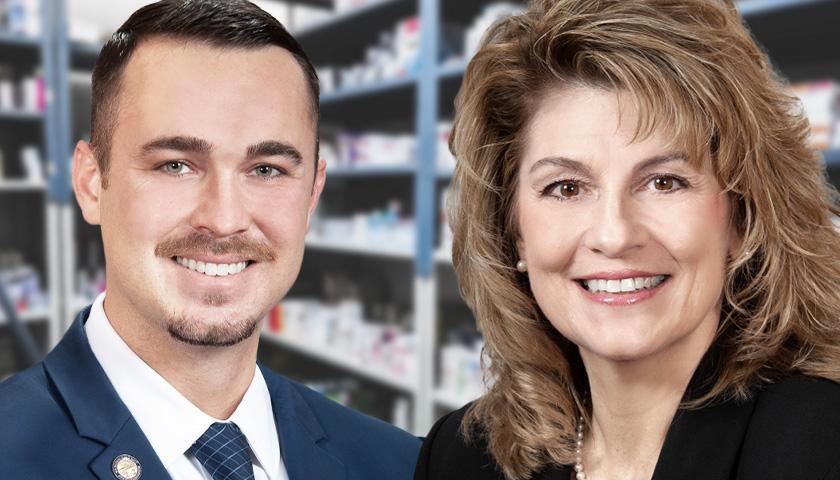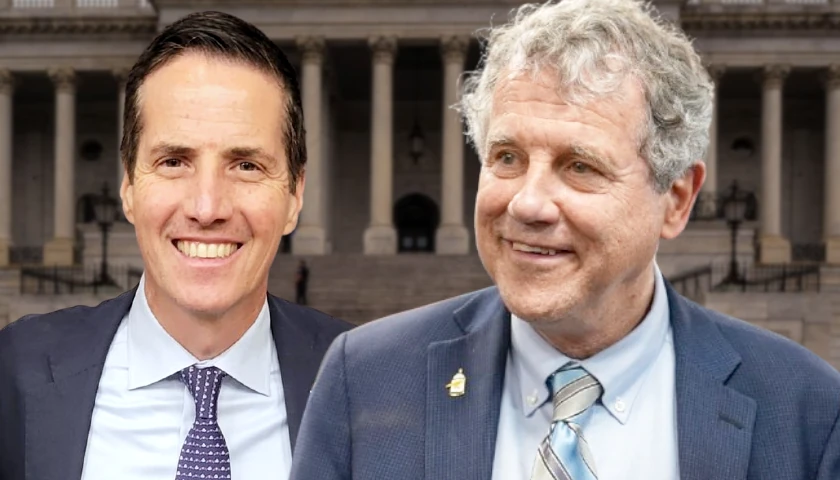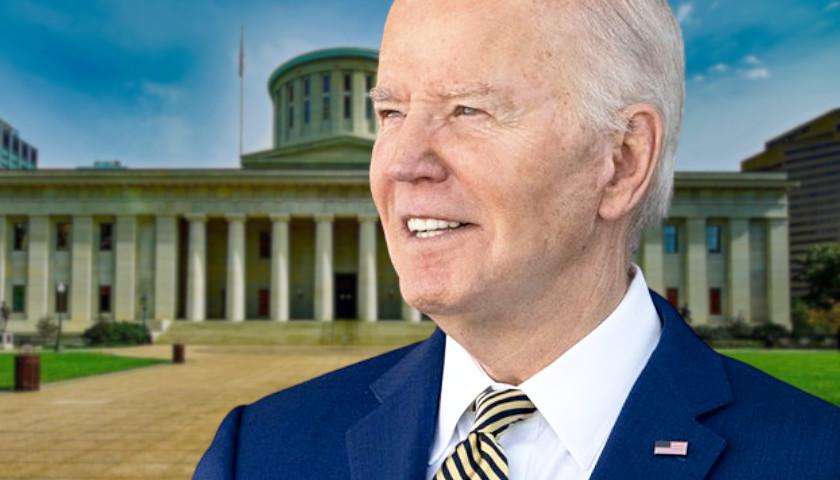The Ohio House of Representatives advanced a piece of Republican-backed legislation that protects a healthcare provider’s ability to fill off-label prescriptions.
House Bill (HB) 73, known as The Patient and Health Provider Protection Act, sponsored by State Representatives Jennifer Gross (R-West Chester) (pictured above, right) and Mike Loychik (R- Bazetta) (pictured above, left) passed 75-17 out of the Ohio House of Representatives advancing it to the Ohio Senate for further consideration.
The legislation aims to protect a healthcare provider’s ability to prescribe any FDA-approved medication that is determined to be medically necessary for their patient, without retaliation from health or state licensing agencies.
According to Gross, Ohio should be a place where both patients and health providers have access to life-saving treatments without fear of retribution.
“When a provider or pharmacist fears retaliatory action from health agencies or licensing boards for prescribing off-label drugs, it limits a patient’s ability to access potentially lifesaving medications. By protecting our providers, we also protect our patients,” Gross said.
According to the lawmakers, off-label medicine prescription has long been a standard medical procedure.
The legal firm McGuire Woods estimates that between 40 and 60 percent of all prescriptions prescribed in the United States are for off-label usage.
This measure prevents health and state licensing organizations from retaliating against physicians, pharmacies, and pharmacists when the board of the organization disagrees with the provider’s use of a drug. With the passage of this legislation, patients’ entitlement to sue and providers’ liability for negligence will both remain in place.
HB 73 tries to ensure that any provider, pharmacy owner, or pharmacist maintains their current right to decline to prescribe or fill any drug for religious reasons.
The legislation also protects the free speech of health providers and their right to express independent medical opinions when they differ from that of health and licensing agencies and protects patients from being denied nutrition or standard daily medications in the hospital if they do not consent to a particular protocol treatment.
HB 73 will also provide some protection against federal drug bans. With this legislation, no political subdivision, public official, or state agency will be able to enforce rules or orders issued by a federal agency that prohibits the use of an off-label drug.
According to Gross, healthcare providers should not face retaliation for providing their patients with the medication they deem best.
“As a legislator, it is my duty to ensure that the liberties of my constituents are protected. Our healthcare providers should not fear retaliation for providing medication they deem best for their patients. This legislation helps protect providers’ and patients’ access to effective treatments without fear of retribution. Reducing barriers is key to our health strategy and the well-being of our state,” Gross said.
HB 73 now heads to the Ohio Senate for further consideration.
– – –
Hannah Poling is a lead reporter at The Ohio Star and The Star News Network. Follow Hannah on Twitter @HannahPoling1. Email tips to [email protected].
Photo “Jennifer Gross” by The Ohio House of Representatives. Photo “Mike Loychik” by The Ohio House of Representatives. Background Photo “Pharmacy” by Árpád Czapp.





